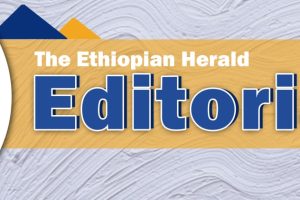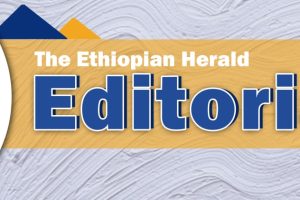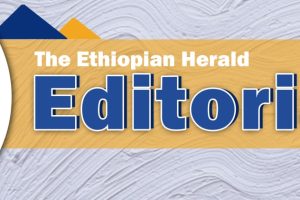
From Israel to Germany, the United States to Ethiopia, the debate ‘hate speech vs. freedom of speech’ is never far from the surface.
No matter the sociopolitical context or the region of the world, there will always be ‘freedom of speech advocates’ who will argue that the right to ‘speak freely’ must have the highest priority, and take precedence over concerns about hate speech or incitement. But, equally, there will always be ‘security advocates’ who will argue that the opposite is the case.
So, who is right? Which is more important, the right of a group or an individual to freely express themselves, or the right of the government to set limits as to what can and cannot be expressed, because it believes that this is in the interest of society?
In the context of Ethiopia, the election of Prime Minister Dr. Abiy, an outstanding communicator, and the subsequent widening of the media landscape, initially brought much-needed de-escalation on the one hand, but has, on the other hand, lead to a veritable influx of self-styled ‘activists’, ‘journalists’, politicians, bloggers, and media, previously banned by the government, which often labeled them ‘terrorists’.
Western observers and internationally renowned journalists have been implying that this new ‘freedom’ would be mostly beneficial for the Ethiopian society. So, let us take a moment to analyze.
To come to any sort of meaningful conclusion, it is essential to consider what ‘freedom’ actually means.
The term ‘freedom’ has become laughably overused, and, as critical observers will point out, is often used in context with what might be described as ‘Western’ or ‘neoliberal propaganda’, in phrases such as ‘the free market’, or ‘freedom of the press’.
But, what, for instance, does ‘press freedom’ actually entail? Does it mean that there are no boundaries as to the opinions that can be expressed? And if not, where are these boundaries, and who determines them?
The dominant view nowadays is that freedom of speech did not or barely exist in Ethiopia until recently. Now, many, Western journalists and Ethiopians abroad and at home included, believe the media is ‘free’ at last, and people can finally speak ‘freely’, without fear of retribution or intimidation. This, Westerners tend to take for granted, has been mostly beneficial for the Ethiopian society, and has brought Ethiopia ‘out of the shadows of dictatorship’.
Now, what, really, does this ‘precious freedom’ entail? Does ‘freedom of speech’ mean that everyone should be allowed to say anything they want, to propagate anything they want, to advocate anything they want?
Western observers and self-styled ‘activists’ have been quick to sing the praises of the new ‘media freedom’. However, on closer inspection, this assessment seems ignorant, at best, willfully incendiary, at worst.
After all, it cannot be denied that the current political climate has become extremely toxic and dangerous, as inciters and instigators have ‘freely’ spread their incendiary messages. Increasingly, the connection to the repeatedly erupting—and, some will argue—intensifying violence in certain parts of the country is made. Surely, these outbursts of hatred are not spontaneous, but, at least in part, the result of hate speech and incitement, by groups and individuals, self-styled ‘journalists’ and self-declared ‘activists’, released from prison, returned from abroad, or emboldened by the reforms.
These examples illustrate that freedom of speech or freedom of the press is never supposed to be absolute.
Societies have always considered certain utterances ‘taboo’—and sanctioned accordingly. There have always been boundaries when it comes to freedom of expression.
‘Freedom’ is never absolute. And it is the responsibility of every government to control—and if necessary punish—what people are saying, writing, propagating, for the benefit, for the security of the whole society, for the sake of peace and stability, for the common good.
On closer examination, it becomes, thus, clear that the perfect balance simply does not exist. Governments must come down on one side or the other, and both have their disadvantages.
Whether of the media, of the market, or in general, too much control has its disadvantages; too little control has its disadvantages; too many regulations bring with it problems, so do too few regulations.
It is, thus, essential to understand that, by its very nature, freedom has its risks and potential dangers.
Indeed, contrary to what many of the ‘activists’ or young bloggers seem to believe, Western-style democracy, often considered the ‘gold standard’, is by no means perfect, and it is arguably not as worth achieving as many have been implying or proclaiming. Simply taking a closer, unbiased look at the state of the European Union or the United States lends ample weight to the argument.
What is most important in this debate, however, is that we recognize the extent of damage that hate speech and incitement, carried out in the name of ‘freedom of speech’, have already done to the Ethiopian society. We must take an international view, and understand that there will always be unpredictable dynamics that will develop, when instigators, inciters, and those who work to divide society are allowed to speak freely.
Given the current sociopolitical climate in Ethiopia, one thing has been amply demonstrated: The right of a society to be protected against incitement, hate speech, or incendiary content of any kind, must necessarily take precedence over the right of groups or individuals to ‘freely’ voice their opinion.
The Ethiopian Herald, November 20/2019
BY KALYPSO SCHULMEISTER



